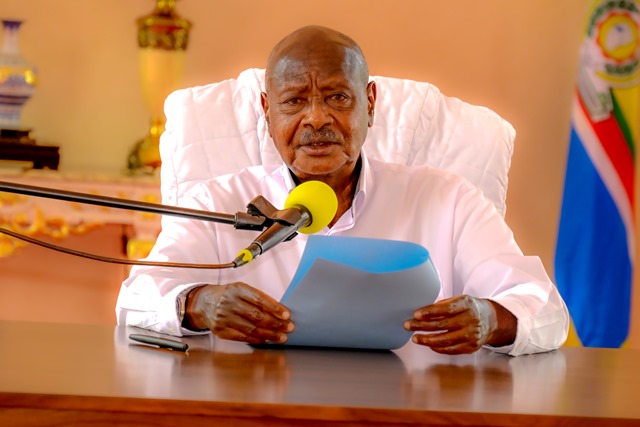Museveni issues executive order to streamline citizenship verification processes
A key directive in the executive order is the presumption of citizenship by birth for all applicants unless substantial evidence proves otherwise.

President Yoweri Museveni has issued an executive order to improve administrative processes related to verifying Ugandan citizenship, particularly for passport and identification document applications.
Signed on January 23, 2025, the order provides clear directives to address complaints about how applicants, including members of the Banyarwanda community, are treated by immigration authorities.
The President invoked his constitutional authority under Article 99 (1) and (4) to issue the order, which emphasizes fairness and transparency in handling citizenship verification.
“I have consistently received complaints regarding the manner in which people applying for passports are treated by concerned authorities,” President Museveni wrote, adding that the issues largely pertain to how citizenship by birth is assessed.
The order reiterates the three types of citizenship defined in Uganda’s 1995 Constitution: by birth, by registration, and by naturalization. The President emphasized that the problem lies not with the law but with its inconsistent application.
To simplify the process, the order directs the Directorate of Citizenship and Immigration Control (DCIC) to require applicants to present only their National Identification Number (NIN) and fulfill other legal requirements. Immigration officers are instructed to rely on Section 40 of the Citizenship and Immigration Control Act, which specifies these as the primary requirements for obtaining passports or other identification documents.
A key directive in the executive order is the presumption of citizenship by birth for all applicants unless substantial evidence proves otherwise.
“Citizenship by birth is inherent and not granted by immigration officers,” Museveni stated. He further clarified that if any doubt arises, it is the responsibility of immigration officials to present evidence to the contrary and refer the matter to the National Identification and Registration Authority (NIRA) for resolution.
The order prohibits the DCIC from confiscating or canceling National Identity Cards issued by NIRA without following due legal process. It directs immigration authorities to work with NIRA to resolve any identification disputes rather than taking unilateral action.
To promote fairness, the order mandates that all applicants, regardless of tribe, ethnicity, or community, be treated equally during the passport application process. Additionally, it stipulates that applications supported by letters from local authorities or corroborated by community elders should result in prompt issuance of national identity cards or passports.
The President also addressed a legal gap in citizenship laws, noting that children of Ugandans by birth or naturalization are not automatically granted citizenship. He instructed the Minister of Internal Affairs and the Attorney General to resolve this anomaly urgently.
Background and Complaints
This directive follows persistent complaints from Uganda’s Banyarwanda community, who allege they are often denied passports and other identification documents despite being citizens by birth. The President’s order seeks to ensure all Ugandans, regardless of ethnicity, have equal access to their legal rights and protections.
By streamlining administrative processes and reinforcing fairness, the executive order aims to uphold the rights of all Ugandans while addressing long-standing grievances about the treatment of citizenship verification.







